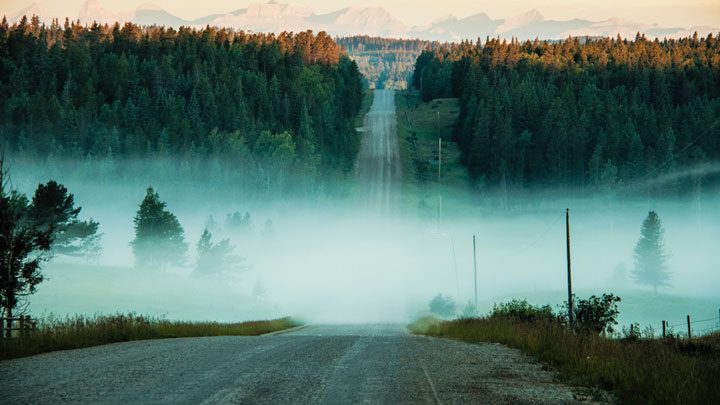Still by Paul Beckman
The fog rolled in and settled a few feet off the ground rising up ten feet or more. The tree trunks were covered as were the cars left where they were because the governor forbade any driving. People walked in and out of the fog and they, like the buildings and trees, turned sepia colored from the fog. People rode their bicycles into each other and parked cars and knocked over women coming home from the supermarket. Fights broke out in bars, on the streets, and churches—everywhere, and the fog lay still for five days. There wasn’t a breeze or a chirp of a bird. The stores started rationing their goods because inventory was low. People who only ate the best and the freshest found themselves eating meals that were pre-packaged or in cans.
On the sixth day, the town was awakened by the thunder and the rain beating down on roofs. The lightening scared the adults as well as the kids and soon the sun came out and the fog dissipated. But there was no more chirping—all the birds were gone and people walked around glum but, sunshine or not, they were still sepia colored, as were their houses and cars and the whole town.
No one was friendly anymore. Neighborhood by neighborhood people packed their cars and pickups and left town all heading east. They saw the fog rolling in slowly from the west and they emptied their bank accounts, put their possessions that wouldn’t fit out for yard sales, each buying something from a neighbor they hadn’t spoken to in years. The fog returned, settled down and hours later, with the help of a brisk breeze, gathered speed going westbound as if it was trying to catch up with the townsfolk who had abandoned their world for another, not necessarily better, but different.

